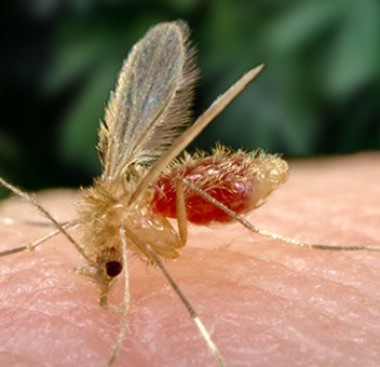“ENDANGERED CURES” HIGHLIGHTS THREATS OF ANIMAL RIGHTS ACTIVISM TO HUMAN HEALTH
Report shows negative impact of animal rights activism on human health
By: Staff Date: 01/16/2012 Category: | Animal Rights Extremism |
Introduction
"The unpleasant truth we must confront is that animal rights activists are succeeding at slowing research. Criticism of animal research has intensified, and the membership and budgets of animal rights groups have continued to soar even though the number of animals used in medical research is estimated to have fallen by nearly 50 percent since 1968." Michael DeBakey MD; Chairman, Foundation for Biomedical Research
Dr. DeBakey's comment appears in the forward to Endangered Cures: Animal Rights and the Crippling of Biomedical Research, a new FBR report that emphasizes the negative impact of activism on human health. Activists indulge in direct harassment of researchers and their families; pressure airlines to stop transporting animals used for research; lobby for laws that burden research institutions with regulations and paperwork without improving conditions for animals; directly challenge particular grants based solely on the grounds that the protocol uses animals; and make outlandish false claims about the use of animals in research - and these tactics bear fruit in part because researchers and patients have been silent on the issues.
Like their campaigns against hunting, circuses, rodeos, livestock farming, and pet breeding, activists' diatribes against medical research are based on aberrant incidents, half-truths, and complete distortions. Claims that animals are mistreated in laboratories is virtually never true; assertions that alternatives to animal use are available are partly true; and accusations that no good has ever come from animal-based research is false.
There is no constituency for inhumane treatment, Endangered Cures broadcasts to the world. "Researchers recognize their special obligation to safeguard the welfare of laboratory animals. They take this position for ethical and scientific reasons. Responsible research is guided by four principles:
- Use animal models only when non-animal models are inadequate or inappropriate;
- Use as few animals as possible;
- Design experiments so that animal studies yield scientifically reliable results; and
- Ensure that all research animals receive good care, humane treatment, and a level of pain no greater than is absolutely necessary."
In spite of such care and in spite of a dramatic increase in human life expectancy because of the use of animals in medical research, celebrities and animal rights activists trumpet their opposition to animal use as cruel and unnecessary. Mary Tyler Moore, a diabetic whose life depends on animal research, aids the animal rights cause by condemning the manufacture of Premarin, a hormone used to help ease the symptoms of menopause for millions of women. Singers K.D. Lang and Chrissie Hyde; actors Earl Holliman, Linda Blair, Tippi Hedron, and Rue McClanahan; and model Naomi Campbell are among the dozens of performers who support the animal rights cause with personal appearances and money while the animal rights activists block AIDS research that involves animals.
Endangered Cures is divided into short summaries of seven medical conditions in which animal-based research holds the best promise for cure. Each section explains the value of animals to the research, synopsizes current work being done, supports the work with statements from scientists, and sums up the activists' attempts to cripple the work.
AIDS
Much of the work in HIV and AIDS research is done with primates, but rats, rabbits, mice, sheep, horses, and cats are also used. Some of these species have diseases similar to AIDS that scientists study to understand how retroviruses work and how the diseases progress.
"In an animal model, you can observe the disease from the first minute of infection and follow its progress, something you can't do in humans because the disease is diagnosed very late," said Anthony Fauci, director of the national Institute for Allergies and Infectious Diseases.
So far, activists have successfully fought a grant application that would have involved macaque monkeys; stepped up a campaign to force airlines to stop transporting primates used in research; and disrupted a study of cryptosporidium, a potentially lethal disease for AIDS sufferers, by releasing more than 1000 animals from a lab at the University of Arizona.
Alzheimer's disease
Four million Americans have Alzheimer's disease, a debilitating neurological disorder that causes emotional problems, memory loss, and impaired reasoning, and 19 million have a family member who has the disease. Yet animal rights activists firmly oppose the use of primates in Alzheimer's research, have delayed funding of the Buck Center for Research on Aging in California, and picketed the home of a Maryland scientist using cats to study brain trauma.
"This is further evidence that there is a loss of momentum now in Alzheimer's research," said Edward Truschke, president of the Alzheimer's Disease and Related Disorders Association. "This is a time when increased funding of biomedical research can reap major benefits. If we can find a way to slow the advance of the disease or delay its onset for just five years, we can reduce by half the millions of people destined to be afflicted."
Breast cancer
Every year, about 45,000 American women die from breast cancer, but the development of genetically-engineered strains of mice holds great promise for a variety of avenues to prevention and cure. The discovery of two genes that affect breast cancer has led to experiments in mice that are designed to stop the growth of malignancies or to actually disarm genes that cause cancer. Dietary studies and hormonal research in mice and rats are also underway in hopes of discovering a cancer preventative for high-risk women.
Animal rights activists oppose the use of genetically engineered animals and have joined environmental activists in filing petitions to block patents on these animals.
Drug addiction
Scientists have made considerable progress in understanding the effects of drug addiction on the brain, and this understanding has led to potential treatment to overcome addiction in some patients. Researchers have developed a chemical that makes rats largely immune to the effects of cocaine; developed a strain of mice that appears completely immune to the effects of cocaine and amphetamines; and used squirrel monkeys to study the link between cocaine addiction and serotonin, which may result in a medication to blunt the cravings an emotional swings of cocaine withdrawal.
Animal rights activists label addiction research as cruel and wasteful. In Defense of Animals has targeted individual scientists working on addiction research. Trans-Species Unlimited harassed a scientist studying barbiturate addiction with cats by picketing his laboratory, distributing literature at Grand Central Station, and generating more than 10,000 form letters condemning the study to the National Institute on Drug Abuse. The scientist returned her grant and gave up.
Head and spinal cord injury
More than 200,000 Americans suffer partial or complete paralysis from head and spinal cord injuries. Advances in emergency medicine and neurological treatment have improved survival rates, but those survivors need intense care, often for the rest of their lives.
Researchers are working on regrowth of spinal cord nerves by using certain protein-blockers in rats and have learned that prompt surgical intervention can improve neurological function in work done on dogs.
One scientists studying the effects of head trauma in cats and primates - both popular animals with the activists - switched to working on ferrets after animal rights activists picketed her home for months.
Heart disease
Heart disease is still the top killer in the country, but its grip on the population is declining because of animal-based research. From the use of specially-bred mice to study atherosclerosis to development of a heart pump that has been tested successfully in calves, scientists are working diligently to reduce the incidence of this disease complex even further.
Rabbits, rats, dogs, chimpanzees and pigs are also used when appropriate to achieve better understanding of the components of heart disease, develop devices to protect patients from erratic heartbeats, discover better drugs for treatment of high blood pressure and stroke, and prevent regrowth of artery plaque after angioplasty.
Animal rights activists slow the use of dogs in this research by campaigning to eliminate pound seizure laws which allow universities and laboratories to purchase condemned dogs from public animal shelters. This campaign was bolstered by the publication of a book that claimed two million pets are stolen annually for sale to research laboratories. The book blamed the USDA Class B dealer system for the thefts and supported the activists battle to force USDA to eliminate these dealers who sell dogs to research facilities. Without either pound seizure laws or Class B dealers, dogs will become more expensive to use.
Xenotransplants
Scientists have been so successful in fighting organ rejection in transplant patients that such transplants have increased considerably. The number of people on waiting lists is rising, but the number of organ available is decreasing. Thus scientists hope to use animal parts, some from genetically engineered animals, to prolong human lives.
Activists oppose the use of transplanted animal organs to prolong human life. When such transplants are scheduled, activists often picket the hospitals and the homes of the surgeons involved. Most recently, activists harassed an AIDS patient who received baboon bone marrow in an effort to boost his immune system. The patient joined AIDS patients in Washington in June to counter the animal rights agenda with a letter condemning their opposition to animal-based AIDS research.
About The Author
All Authors Of This Article: | Norma Bennett Woolf |












